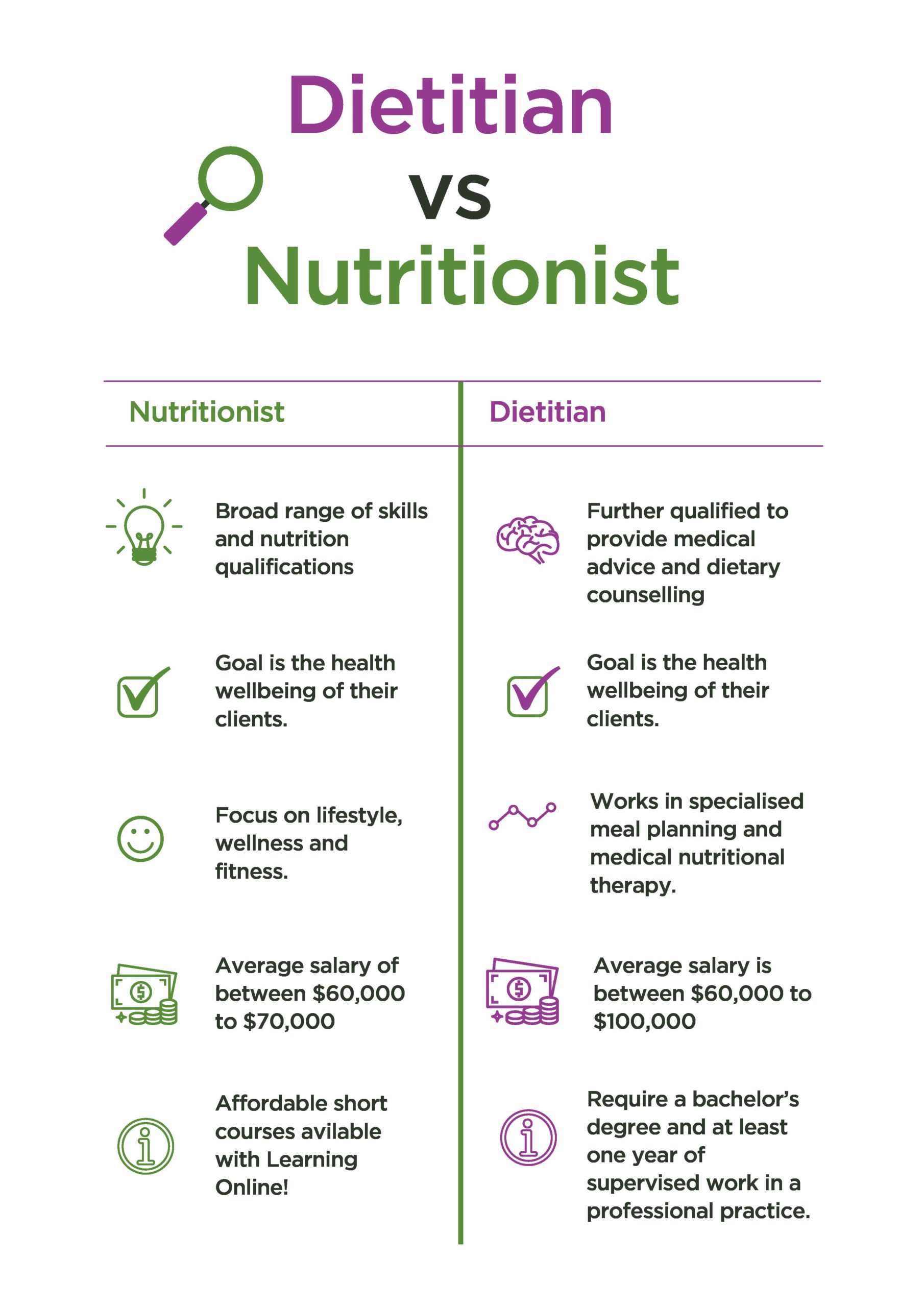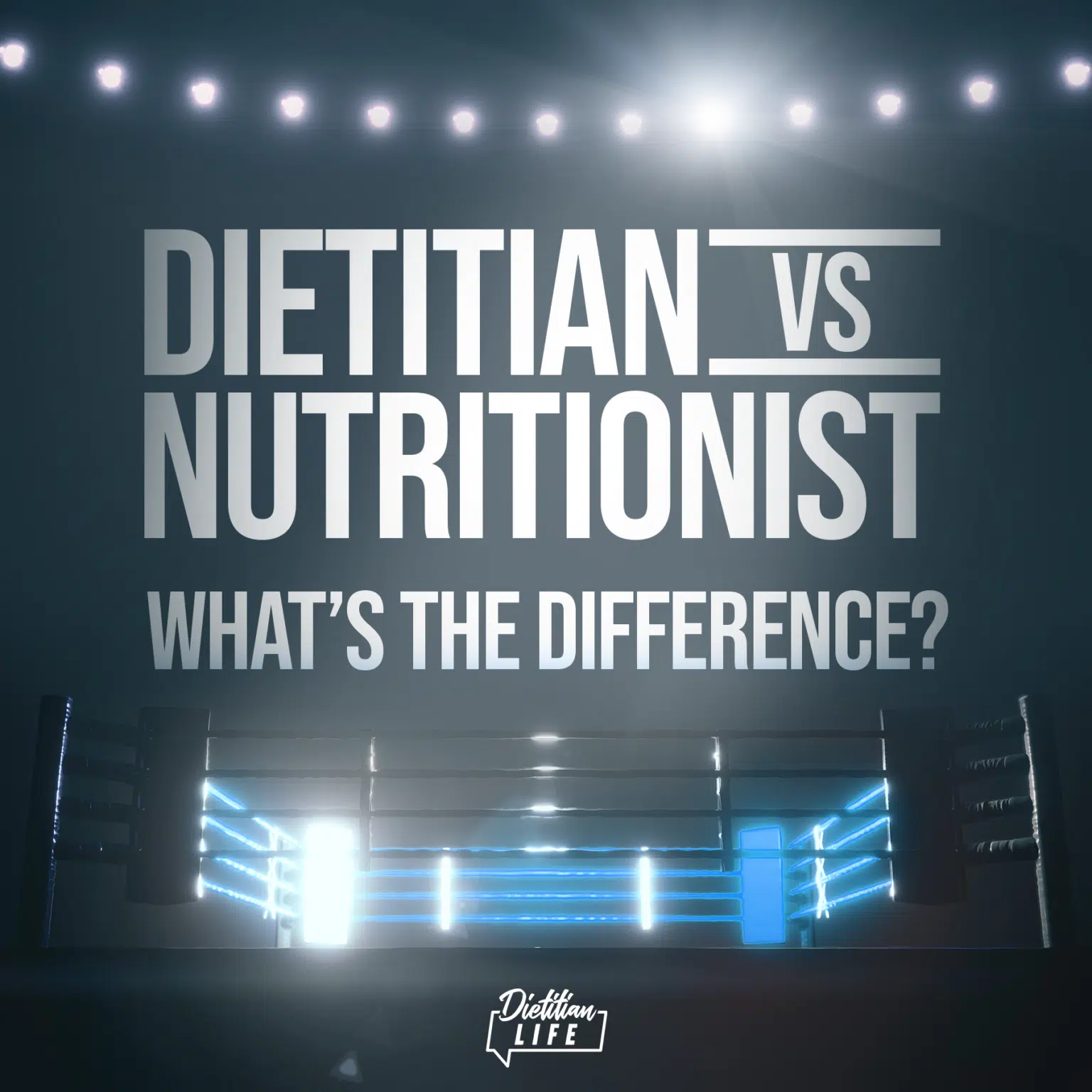All Categories
Featured
Table of Contents
The types of Nutritionists are: and. The previous are those people that utilize the scientific approach to study nutrients, both as individual substances and as they connect in food and nutrition while the latter are experts that help in diagnosing the nutritional issues of communities and in locating services to those troubles.
: They work with wellness programs and worldwide health and wellness organizations.: They are responsible for large food planning and service.: They are experts in nourishment and aging. They are Board certified in Gerontological Nourishment with the American Dietetic Association.: They are mainly entailed with nutritional related study in the scientific facet of nourishment in disease states, public aspect on main, secondary and sometimes tertiary wellness prevention and foodservice aspect in issues entailing the food gotten ready for people.
What Is Full Service Registered Nutritionist?
, and papers-- either as a specialist guest viewpoint, regular columnist or guest, or for source, restaurant, or recipe growth and critique.: These job under exclusive practice. As discussed above, all dietitians are nutritional experts yet not all nutritional experts have the qualifications and certifications to be called dietitians.
This suggests exactly the very same thing as Registered Dietitian (RD), a term that has been in usage for a long time. While certification to become an RD or RDN is regulated by the Academy of Nourishment and Dietetics a national organization licensure is regulated by specific states.

In order to give clinical nourishment treatment and qualify as carriers for insurance provider, a dietitian should be licensed by the state. According to the Bureau of Labor Data, the need for dietitians and nutritional experts is anticipated to increase by 20% between 2010 and 2020 this is a much faster growth price than the standard for all professions.
The Best Women’s Health Dietitian Service?
There are significant differences in settlement based upon specialization, with Clinical Pediatric Dietitians and Dairy products Nutritionists balancing approximately $90,000. In 2014, The Bureau of Labor Statistics (BLS) found that the top 10% of dietitians and nutritionists earn more than $79,000, and the lower 10% much less than $36,000 - Naturopathic Dietitian. A mean per hour wage of $27.62 was computed for both industries, with the top 10% earning over $38.00 per hour, and the lower 10% earning below $17.00 per hour

There is a selection of tasks available in different atmospheres for those that want to function with the public, as well as for those who like more research-focused work. Many enter into one of these fields in order to help people live much healthier lives which can be immensely gratifying.
With existing data that one-third of the U.S. population is overweight, along with a large number of elderly united state homeowners, dietitians and nutritional experts are likely to have a more considerable function in the future. My Plan ranks dietitians and nutritional experts at # 53 in their happiness index of top 300 jobs with the greatest work complete satisfaction scores.
In addition to going to a certified program, the majority of states call for dietitians to be accredited or to have professional qualification, or both.
What Is The Best Athletic Performance Nutrition App?
Your core classes might include: Food scientific research Chemistry Health treatment policy Clinical nourishment Biostatistics Microbiology Food service management You'll additionally require to complete a dietetic teaching fellowship.

Whether written in law or not, dietitians and nutritional experts many times need a comparable education. Usual bachelor's levels for nutritional experts consist of nourishment scientific research or a relevant technique, such as dietetics, kinesiology, food system administration, or biochemistry.
The variety of hours you'll need may depend upon requirements in the state where you'll function. Whether you plan to earn a credential or otherwise, it's a great concept to finish at least one teaching fellowship to gain valuable experience before looking for a full-time function. Licensing and accreditation needs for nutritionists and dietitians differ from state to state.
How Much Does It Cost To Have A Heart Health Nutrition?
An expert qualification demonstrates your competence and expertise in your field. These are not certification programs. A certificate indicates that you have taken a training program to find out a skill. Accreditation shows your mastery prolongs past your education which you've passed a qualifying test. Right here are the leading accreditations for dietitians and nutritionists.
The titles are essentially the same. There's no expert difference between them, and you're complimentary to pick which one you desire to use based on individual preference. To take the qualification test, you have to: Make an undergraduate degree that's certified by the ACEND Full a dietetics teaching fellowship After Jan. 1, 2024, you'll need to gain a master's degree to certify for the certification.
What Is The Best Best Nutritionist For Weight Loss Service In My Area?
Bureau of Labor Data puts dietitians and nutritionists in the exact same classification and states they make a average yearly income of $69,680. There is an array in wages, with the lower 10% around $44,910 and the leading 10% around $98,830, according to the BLS. Nutritionist and dietitian functions are anticipated to expand 6.6% through 2032, according to the BLS.
This does not mean that profession is superior to the other, as they both have various functions and credentials that could in some cases overlap. If you wish to discover more concerning what makes these occupations distinct, maintain analysis. Dieticians are professionals that help improve the lifestyle with healthy food selections.
The Best Nutritionist?
Nutritional expert advice about nutrition's effect on wellness. The field is much less regulated than diet professionals; for this reason, nutritional experts' levels of proficiency and credentials can vary.
There are numerous differences between dieticians and nutritional experts. Right here are the training and history specs. Diet professionals typically hold a bachelor's level in dietetics, nourishment, or a related area. As their jobs advance, numerous diet professionals pursue advanced levels, like a Master's or Doctorate, to specialise in specific locations of nourishment. Dieticians should undertake supervised sensible training as part of their education to get hands-on experience in medical settings, area nutrition programs, or food solution administration.
Latest Posts
What Is The Best 8 Week Body Transformation Female Company?
What Is The Best Body Transformation With Running Product?
Renal Dietitian